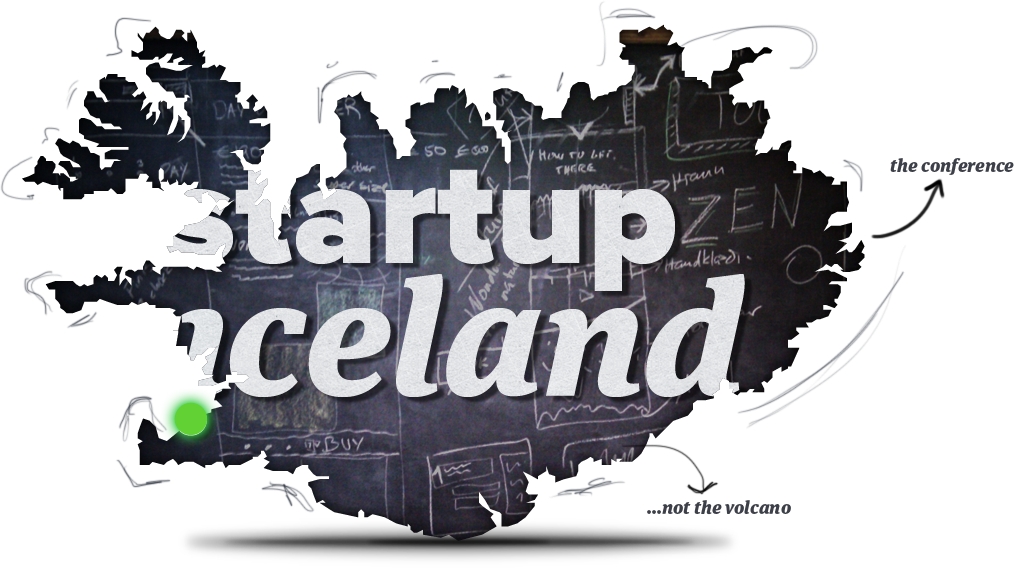Earlier this month, Reykjavik hosted the second annual Startup Iceland conference, which drew 300 entrepreneurs and thought-leaders from Iceland, the US, Canada, Europe, the UK, Asia, Scandinavia and South Africa. The four day event featured a hackathon, unconference-style breakout sessions, and presentations from key influencers. High profile speakers from entrepreneurial world included the heads of Foundry Group, Union Square Ventures, the Portland Seed Fund, the Seattle Angel Conference, and Lean Startup Seattle. Other speakers included Icelandic President Olafur Ragnar Grimsson, tech journalist John Biggs, 2003 Advertising Woman of the Year Cindy Gallop, risk engineering professor Nassim Nicholas Taleb (bestselling author of The Black Swan), the Icelandic ambassador to the US, and the Icelandic co-director of the documentary The Startup Kids.
Startup Iceland’s founder, Bala Kamallakharan, is an Indian serial entrepreneur and angel investor. As ArcticStartup.com tells it, he originally moved to Iceland to join the (at the time) booming financial sector by investing in tech startups. But then the 2008 financial crisis left the economy devastated, and Kamallakharan became convinced that Iceland needed small, nimble companies to create value and drive the recovery. With that in mind, he founded Startup Iceland to foster a startup ecosystem that would facilitate collaboration and mentorship among entrepreneurs.
Kamallakharan reached out to investor and entrepreneur Brad Feld, who was instrumental in transforming tiny Boulder, CO (a population smaller than Reykjavik) into the country’s top city for startups,according to Businessweek. Feld co-founded both the venture capital firm Foundry Group and the #1 startup accelerator in the world, TechStars. Kamallakharan wrote a chapter on Iceland for Feld’s book “Startup Communities: Building an Entrepreneurial Ecosystem in Your City.” According to ArcticStartup.com, Feld agreed to come over to Iceland and help jump start the scene there, and the conference was born.
Kamallakharan chose the theme “Building an Antifragile Startup/Entrepreneurial Ecosystem” to emphasize Iceland’s resilience. The term antifragile refers toa book of the same name by Nassim Nicholas Taleb. Taleb researches probability, uncertainty, and randomness at NYU as a professor of Risk Engineering. He defines antifragile as a category of things that benefit from stress, disorder, volatility, and turmoil. For example, rumors and riots intensify when someone tries to repress them, and bones grow stronger from being exposed to stress.
Kamallakharan explains that Iceland falls into this category because “the entrepreneurial community is getting stronger every day since and because of the financial crisis that hit in 2008.” President Grimsson suggested in his address that the crisis had spurred a surge of entrepreneurial energy because “when jobs disappeared, people had to suddenly get creative about what to do next.” Attendee Renee Blodgett cites an Icelander who told her their resilience runs deep: “When you live on an island in the Nordic north, you learn that you can’t control the conditions you’re given and they’re constantly changing. You learn to live with them, go with the flow and have a sense of humor along the way. There’s no other choice.” Haukur Guðjónsson, a local entrepreneur who attended the event and blogs about Icelandic entrepreneurship, agrees that “the tenacity and stubbornness Icelanders used to survive hundreds of years of the harsh and extreme climatic conditions as well as the economic crisis is the very asset that will enable a thriving startup ecosystem in Iceland.”
Iceland’s entrepreneurs also benefit from a community small enough to remain close-knit. Jason Mendelsohn of Foundry Group notes that in contrast to Silicon Valley’s “every man for himself” atmosphere, Icelandic entrepreneurs keep up a free flow of ideas and advice, because – in the long run – helping others reach success leads to growth for the whole fledgling community.
And Icelanders are starting to realize the importance of entrepreneurship for their economy. As Guðjónsson points out, “only a few years ago the Icelandic banking system was one of the biggest factors in the country’s economic problems and now one of those banks is funding and hosting Startup Reykjavik,” Iceland’s first startup accelerator. With two years of solid growth and a 6.3% unemployment rate (lower than the US and the UK), the country is now considered one of Europe’s recovery success stories. Iceland has come out of its crisis with a thriving startup ecosystem and hit the ground running.


Comments
article Next
article